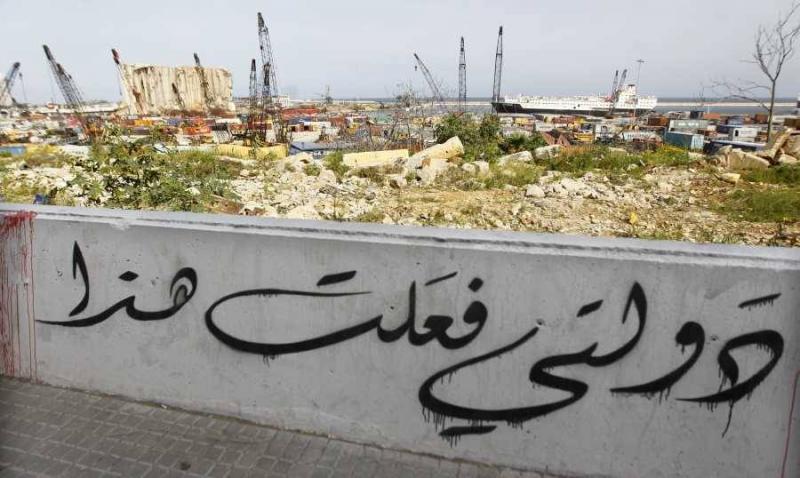The stalled investigations into the Beirut port explosion continue to attract international interest and monitoring. On Wednesday, Foreign Minister of the caretaker government, Abdullah Bou Habib, discussed political and economic issues with a delegation from the U.S. Congress and the Task Force for Lebanon. The focus was not only on the urgency of electing a new president and forming a new government to improve conditions, but also on the delegation's request to expedite the investigations into the port explosion... this is from the U.S. perspective.
From the French side, the office of the International Organization of Francophone Supreme Courts—comprising, in addition to the Lebanese Court of Cassation, the supreme courts of France, Switzerland, Canada, Morocco, Benin, Senegal, and Mali, representing the supreme courts of fifty countries across four continents—decided to send a message of support by unanimous accord for the Chief Justice of the Lebanese Court of Cassation, Judge Suhail Abboud, who is also the president of the Supreme Judicial Council and a former president of the organization. This message emphasized his efforts to uphold the independence of the judiciary enshrined in the Lebanese Constitution, which alone can guarantee citizens' trust in their justice system, according to the organization.
This took place during the organization's annual meeting in Paris last Friday, where they discussed the challenges facing justice and the impact of these challenges on the independence of the judiciary and the proper functioning of courts. While the organization did not directly mention the August 4 case, as per diplomatic sources to "Al-Markazia", this decision was prompted by Abboud’s recent positions and following his statement issued a few days prior—in response to the Justice Minister Henry Khoury’s call for the Supreme Judicial Council to convene, setting an agenda that highlighted the issue of the "substitute judge" in the port investigations. Abboud's statement contained a clear condemnation of blatant political interference in judicial work.
Consequently, the French message can be seen, even indirectly, as support for Abboud's handling of the port investigations, where he has acted as a bulwark against the practices of the ruling authority, which has attempted for years to undermine or redirect the investigation to a more favorable course for the ruling system. However, despite the international scrutiny on local judicial performance in general and particularly on the port explosion case, the investigations remain stalled, and the hands of the investigating judge, Tarek Bitar, have been tied for over a year.
According to sources, if this state of stagnation and negativity continues, major capitals will change their approach to the case and will become increasingly convinced of the need to transition from relying on Lebanese capabilities to uncover the truth to supporting international investigations into the matter, the sources concluded.




